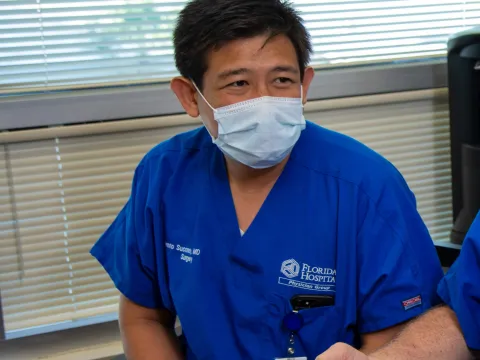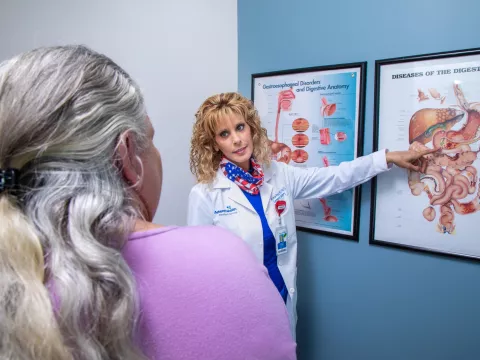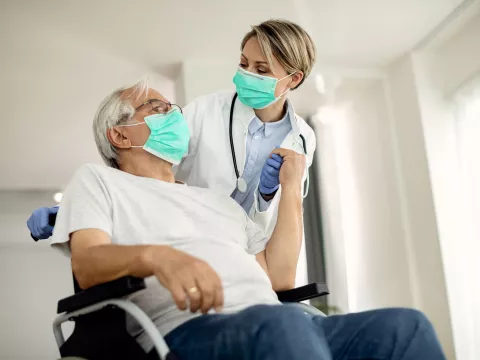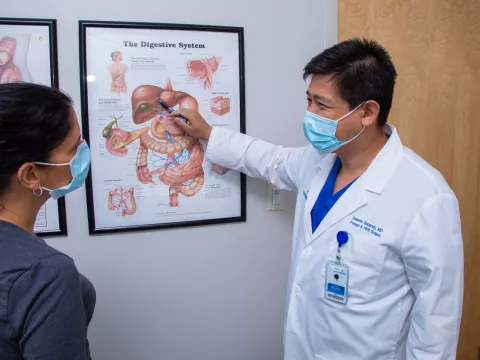- AdventHealth Digestive Health Institute
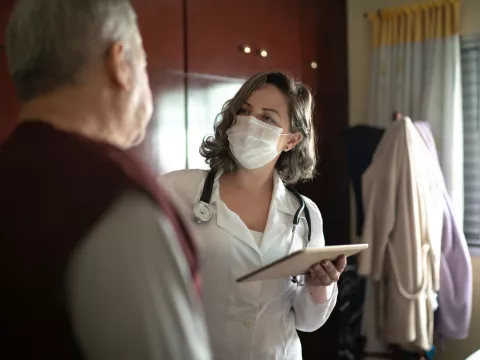
When you have complications related to Crohn’s disease, AdventHealth Digestive Institute Tampa’s colon and rectal surgeons stand ready to offer surgical solutions that provide relief while preserving your quality of life.
Crohn’s disease, along with ulcerative colitis, is one of two conditions that comprise inflammatory bowel disease, or IBD. Often confused with irritable bowel syndrome (IBS), IBD is one of the hottest topics in all gastroenterology. As scientists and researchers learn more about what causes IBD, better treatments — and hopefully a cure — will emerge.
Doctors currently know that Crohn’s disease creates inflammation of tissues at the microscopic level. This can happen anywhere along the entire digestive tract. In this way, Crohn’s disease differs from ulcerative colitis, which only affects the rectum and colon, or large intestine. People with ulcerative colitis can have their entire colon and rectum surgically removed and be cured of the condition. However, there is no known cure for Crohn’s disease right now. Like other autoimmune conditions, people with Crohn’s disease experience flare-ups. When these flare-ups subside, the condition is said to be in remission.
At the Digestive Institute, we have extensive experience in surgery for Crohn’s disease. Still, we also make sure our patients are paired with the right IBD specialist who can keep them in remission for as long as possible.
Crohn’s Disease Surgery in Tampa
Patients may require urgent surgery if inflammation creates an intestinal blockage or the intestine becomes perforated or develops a hole. Surgery may also be needed for rectal bleeding, indicating a problem farther up the digestive tract.
While IBD medications have improved in recent years, sometimes patients need very strong ones to find relief. Unfortunately, these medications can lead to side effects, interfering with the body’s healing abilities or even causing cancer. Other patients find that their medical treatment works — but not completely. They might continue to lose a lot of weight, leading to malnourishment. Other patients do not have access to these medications or may have a complication from the medications. In these cases, it might make sense for a patient to have surgery to remove a portion of the intestine if it allows them to avoid serious medications or be in better health.
Benefits of Finding a Surgeon Experienced with Crohn’s Disease
Because surgery for Crohn’s disease can be complex and the condition is still somewhat mysterious, ideally, care should be provided by a board-certified colon and rectal surgeon who is well-trained in these types of operations. It’s worth asking any surgeon you are considering how often he or she performs surgery to treat IBD.
Crohn’s disease can affect so many different areas, so surgery for it is varied. Some patients may need a temporary ostomy, others may need a large colon resection, and still, others may need only a minor anal procedure that can be done on an outpatient basis.
Operating in the presence of inflammation is challenging even for the most capable surgeon.
Given the inflammatory nature of Crohn’s disease and that this swelling can affect nearby organs, such as the bladder or other urinary structures or gynecologic structures that are not part of the digestive tract, it’s important that patients seek out specialty centers for surgery.
Even open surgery for Crohn’s disease can be demanding. At the Digestive Institute, we offer minimally invasive operations such as those done with laparoscopy or robotic surgery. Patients typically experience a faster recovery with less pain and are discharged home more quickly by avoiding an open operation. Also, when more extensive procedures are necessary, we strive to offer sphincter-preserving surgery so that patients do not need a permanent ostomy. This is possible in select cases after a full discussion of the risks and benefits of all options.
Comprehensive Care for Crohn’s Disease Is Worth It
While it’s true that some patients will require future operations to properly manage their condition, we hope that the first surgery given to a patient with Crohn’s disease will be their last.
Our goal is to keep patients in remission by making sure they are seeing a good gastroenterologist who specializes in treating IBD. Along with a comprehensive care team that includes a nutritionist and perhaps an endocrinologist, we try to get patients on track for a flare-up-free life.
If you or a loved one needs surgery for Crohn’s disease or ulcerative colitis or are looking for an advanced team to help keep you in remission, contact the Digestive Institute Tampa. For an appointment, call 833-288-0248.

